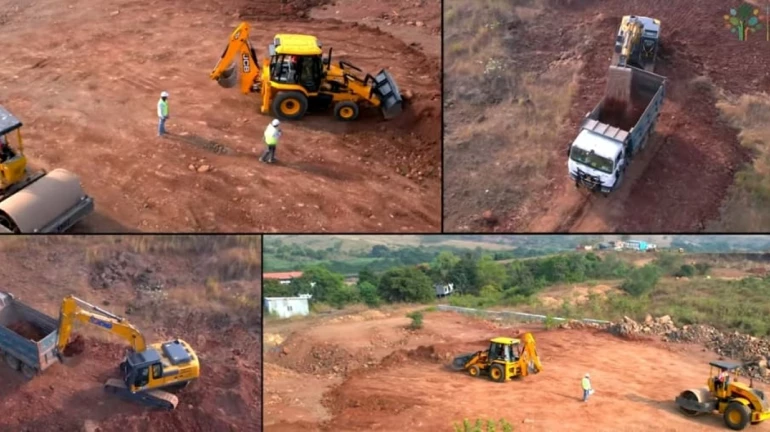
Pune is about to make history as the city prepares for the foundation stone ceremony of the world's largest stepwell. This isn't just any stepwell. It's the first of its kind in half a millennium to be dedicated to water conservation. The foundation stone for this phase will be laid on Thursday, June 6 at 4 pm.
The stepwell will be located in EvoGreen City in Dehu, Pune, which will be the first sustainable town in India. The city is the brainchild of Sandeep Sonigra, a world-renowned builder known for his green projects.
EvoGreen City will span approximately 45 acres. There are about 70 acres of surrounding forest and one kilometre of the Indrayani River running beside the city. The city will rely entirely on renewable energy and harvested water, in collaboration with two German universities.
The stepwell itself will be a marvel. With a volume of 90 thousand cubic metres, it will be four times larger than the Abhaneri stepwell in Rajasthan, which has a volume of 24 thousand cubic meters. The stepwell will help raise the groundwater level, benefiting 15,000 residents of the township as well as the entire Dehu village.
The construction of the stepwell will be carried out in two phases. The first phase will see the stepwell reach a depth of 10 meters. It will be opened on World Environment Day in 2025. The second phase will take the stepwell to a depth of 20 metres, a process that will take an additional three years.
It will be a slanting feature. This stepwell will be the first to be built in India after the one in Telangana that was made 500 years ago. Most of the stepwells in Rajasthan are about 900 years old.
The EvoGreen township aims to leave a positive carbon footprint by using environmentally friendly building materials. It will rely on renewable energy sources and step-well water to meet the needs of its residents.
This will be the first time that a sustainable project will also be water-self-sufficient. By producing more groundwater, self-sufficiency will benefit the people and will also be an architectural marvel.





